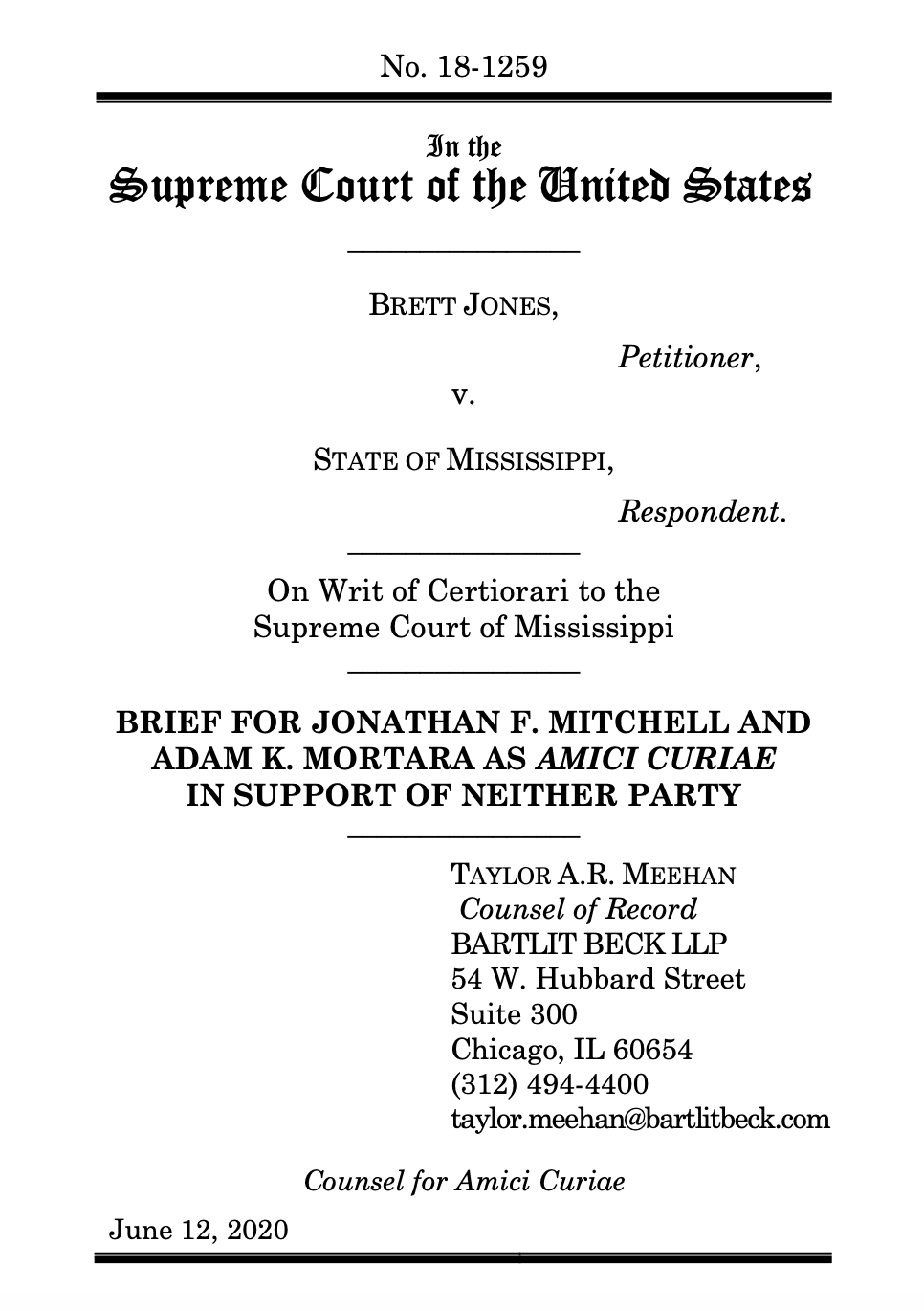
Summary of Argument
This Court in Miller v. Alabama considered the constitutionality of state laws requiring a mandatory minimum sentence of life-without-parole for homicide offenders, without any exception for juveniles. See Miller v. Alabama, 567 U.S. 460, 469 (2012). Holding that these “mandatory” sentencing schemes were unconstitutional as applied to juveniles, Miller requires sentencers to consider a juvenile homicide offender’s “youth and attendant characteristics” before imposing a life-without-parole sentence. Id. at 480, 483. But Miller left it for the states to decide what particular factfinding requirements or further procedures might be required when sentencing juveniles. See Montgomery v. Louisiana, 136 S. Ct. 718, 735 (2016). To comply with Miller, a sentencing court need not consider any particular set of factors, let alone utter magic words such as “permanent incorrigibility.”
Of course, this Court could announce a new procedural rule requiring consideration of particular factors in this case, thereby expanding Miller. But as of now, the Constitution, as interpreted by this Court, permits life-without-parole sentences for juvenile homicide offenders so long as the sentencer retains some discretion in sentencing. Miller, 567 U.S. at 483; see also Roper v. Simmons, 543 U.S. 551, 572 (2005) (assuring states that life-without-parole sentences could have a similar deterrent effect as now-outlawed death sentences for juveniles).
Montgomery did not and could not expand Miller to require a factual finding of “permanent incorrigibility.” Montgomery itself disclaims that Miller “require[d] trial courts to make a finding of fact regarding a child’s incorrigibility.” 136 S. Ct. at 735. Even had this Court wished to expand Miller, it could not have done so given Montgomery’s posture—a case on collateral review and altogether the wrong vehicle to announce new procedural rules. Expanding Miller to require a “permanent incorrigibility” finding would not have been retroactively applicable to Montgomery. Teague’s retroactivity bar would prohibit the application of that “new constitutional rul[e] of criminal procedure . . . to those cases which have become final before the new rules are announced,” Montgomery’s case included. Teague v. Lane, 489 U.S. 288, 310 (1989) (plurality op.). This Court should clarify that Montgomery did not and could not have expanded Miller by adding new procedural requirements, lest this Court condone the issuance of advisory opinions.
Just as new Eighth Amendment procedural rules could not have applied in Montgomery, any new Eighth Amendment rules adopted by the Court in this case cannot be applied in cases pending on collateral review. Should this Court expand Miller by adding new procedural requirements, those new procedural rules cannot be retroactively applied to habeas petitioners whose sentences are already final. Teague would preclude it.